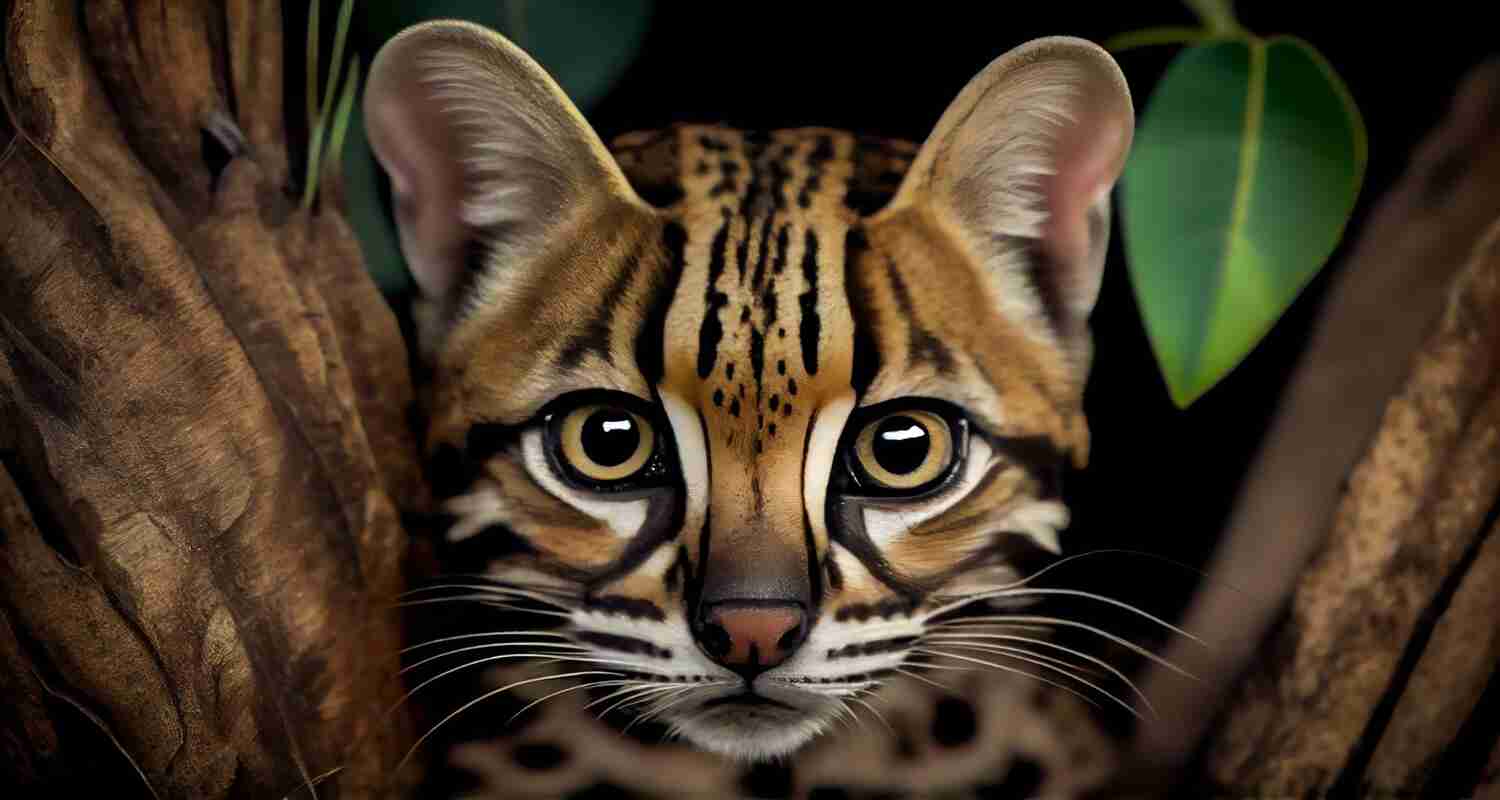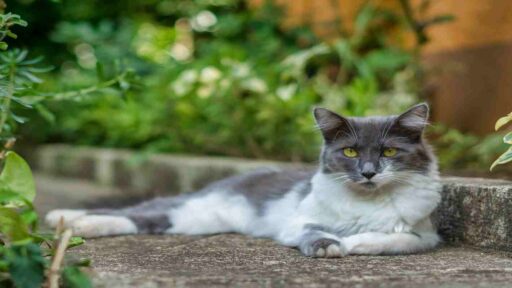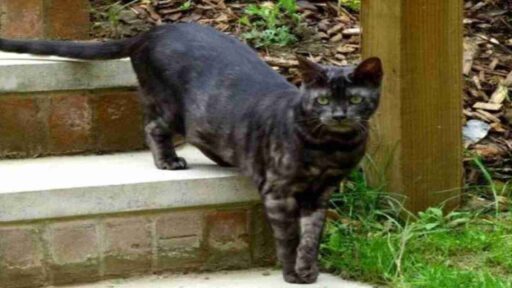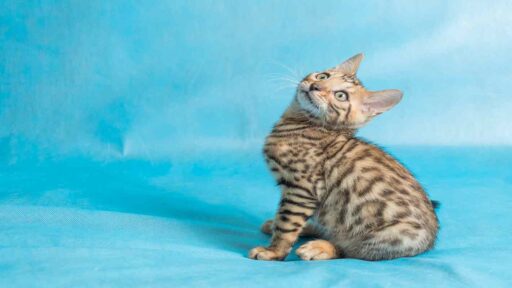black-footed cat is a small and elusive wild feline found in Southern Africa, known for its tiny size, unique black footpads, and exceptional hunting skills.
what is a black-footed cat?
The black-footed cat is a small, elusive wild feline native to Southern Africa. Considered the smallest African cat species, it features distinctive black pads on the soles of its feet. These cats excel as hunters, renowned for their remarkable success rates in hunting, often capturing multiple prey in a single night. Despite their small size, they’re efficient predators and play a crucial role in their ecosystem. Unfortunately, they face threats due to habitat loss and human activities, resulting in their classification as endangered.
characteristics of the black-footed cat
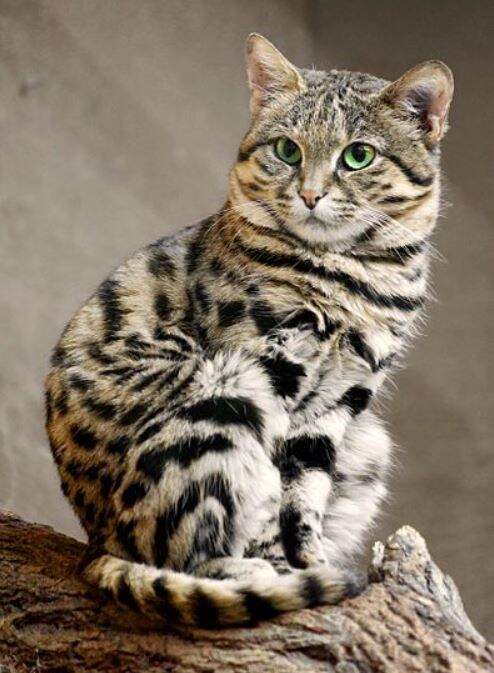
The black-footed cat a small wild feline native to Southern Africa, has several distinctive characteristics:
- Tiny Size: They are one of the smallest wild cat species, with adults weighing around 2 to 4 pounds.
- Distinctive Appearance: Known for their black-spotted fur and the unique black pads on the soles of their feet, which give them their name.
- Exceptional Hunters: Despite their size, they exhibit incredible hunting skills with a high success rate, often capturing multiple prey in a single night.
- Nocturnal Behavior: Primarily active during the night, they use their keen senses and hunting prowess to stalk and catch their prey.
- Territorial Nature: Black-footed cats are solitary animals and fiercely defend their territories from other individuals.
- Endangered Status: They face threats due to habitat loss, human activities, and other factors, resulting in their classification as an endangered species.
the black-footed cat’s origins
The black-footed cat comes from Southern Africa’s arid regions, especially Botswana, Namibia, and South Africa. They thrive in semi-desert and savannah habitats, moving through various landscapes in search of prey. They have adapted to harsh conditions in these areas, which is linked to their survival.
Care
The care of black-footed cats, especially in captivity or conservation programs, requires specialized attention:
- Habitat: Provide a spacious, natural enclosure.
- Diet: Offer a varied, meat-based diet.
- Enrichment: Stimulate with toys and activities.
- Veterinary Care: Regular check-ups are vital.
- Conservation: Support breeding and preservation.
- Stress Reduction: Minimize disturbances.
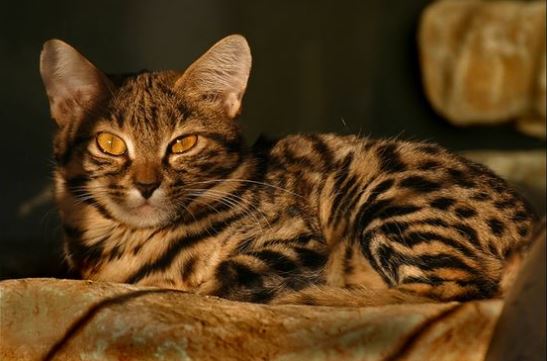
Personality and treatment
The black-footed cat’s personality and behavior in captivity are observed to be quite elusive and solitary. Consequently, in zoos or sanctuaries, they often prefer seclusion and may exhibit behaviors akin to their wild counterparts, maintaining a solitary lifestyle. Moreover, their treatment involves providing spacious, naturalistic enclosures that mimic their arid, semi-desert habitat.
Crucial for stimulating their instincts and keeping them mentally and physically active are enrichment activities like providing hiding spots, climbing structures, and opportunities for hunting-like behavior with toys or simulated prey. Caregivers focus on minimizing stress and providing a suitable environment to ensure their well-being in captivity.
Diet
The diet of a black-footed cat primarily consists of small mammals, such as rodents, birds, insects, and occasionally reptiles. They are skilled hunters, employing stealth and agility to catch their prey. In captivity, their diet is carefully managed to replicate their natural hunting behavior, usually consisting of a balanced mix of meat, including rodents, chicks, and other small prey items. This diet aims to fulfill their nutritional needs and encourage natural behaviors to maintain their health and well-being.
Read more about cat’s health HERE
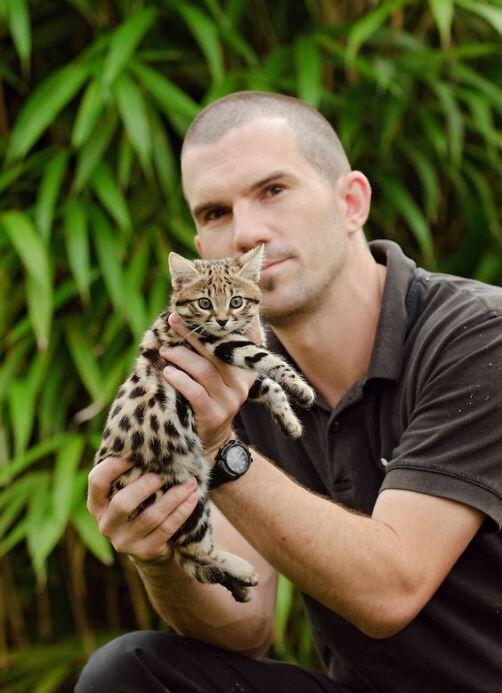
Can the black-footed cat be a domestic?
The black-footed cat, as a wild species, is not domesticated and is not suitable as a typical household pet. Their wild nature, specific habitat needs, and hunting instincts make them unsuitable for domestication. Additionally, they are listed as an endangered species, and owning one as a pet would be illegal in most places, as they require specialized care and conservation efforts to protect their dwindling population in the wild.
Black-footed cat FaQs
What are some interesting facts about the black-footed cat?
Here are a few fascinating facts about black-footed cats:
- Superb Hunters: Despite their small size, they’re highly efficient hunters with one of the highest hunting success rates among wild cats, catching prey in nearly every hunting attempt.
- Tiny Size: They’re among the smallest wild cat species globally, weighing only about 2 to 4 pounds on average.
- Nocturnal Predators: These cats are primarily active during the night, utilizing their keen senses to hunt under the cover of darkness.
- Unique Foot Pads: Their distinctive black footpads provide thermal protection against the hot African ground and aid in silent movement during hunting.
- Solitary Lifestyle: Black-footed cats are solitary animals, typically maintaining their territories and avoiding interaction with other individuals.
- Endangered Status: Sadly, they are classified as endangered species due to habitat loss, human interference, and other threats, making conservation efforts critical for their survival.
What is the behavior of a black-footed cat?
Black-footed cats are solitary and elusive creatures. They’re primarily nocturnal, preferring to hunt and roam during the night.
Their hunting skills are exceptional, boasting an incredibly high success rate in capturing prey. Consequently, these cats are territorial, fiercely guarding their area from other individuals. Moreover, in captivity, they often display similar behaviors, preferring seclusion and maintaining a solitary lifestyle.
How long does a black-footed cat live?
In the wild, black-footed cats typically live around 10 to 12 years. However, in captivity, they may live slightly longer, sometimes reaching up to 15 years or more with proper care and veterinary attention
Can the black-footed cat climb?
black-footed cats are capable climbers. While they may not climb as adeptly as some other cat species known for their tree-climbing abilities, they can climb trees and use elevated spots to survey their surroundings or escape potential threats.

